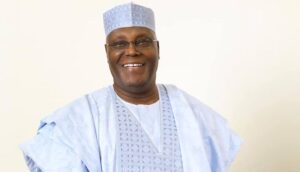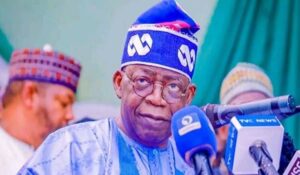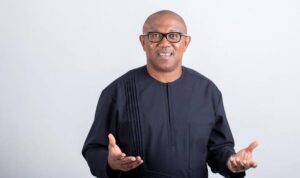Editorial Commentary.
To state that Nigerians are resilient and resourceful would be a grand understatement, for both adjectives fail to capture the enviable depth and breadth of brilliancy that define their collective lot (What they have done with this attribute on the international scene is a different consideration). Equally enviable is the variety of natural resources nature has endowed the geographic and territorial competence they claim and occupy. But this is where a generous description ends, and a nightmarish tale becomes the appropriate literature genre to effectively narrate the current state of affairs of the average Nigerian. By all reasonable expectations, Nigerians should by now have at their disposal the various social amenities that commonly define advanced economies…an economy that furnishes good employment opportunities, reasonably safe cities and towns, a functional healthcare sector, good network of roads, steady-state electricity, a good educational system, affordable housing, and more. The country has within it and outside its shores the requisite human capital to industrialize its economy and manage a sustainable trajectory of growth that would afford its citizens these amenities with relative ease. Reasons for the catastrophic failure to achieve this expectation are too numerous to adumbrate here but chief amongst them is the bad choice of leadership the electorate has consistently made or imposed on them over the past decades. This is unfortunate, but the electorate now has an opportunity afforded by this election to make a course-correction that would ultimately define Nigeria’s future as a viable nation-state or default to one of confederacy with independent nations loosely connected by jointly held infrastructures and assets.
In the normal run of things, making the right choice of leadership in national elections is a difficult one, and once again, Nigerians have managed to present to the electorate three presidential candidates each as unappealing as the other but for different reasons. As the cacophony of unreasoned pronouncements from the candidates and their campaign staff daily assault the auditory and optical senses of the electorate, a reasoned certainty is that one of the candidates would be elected president of the country. This choice would be made from an assortment of polished curriculum vitae of the candidates (as most CVs tend to be), unverifiable claims of capabilities, actual resumes that would impress the most unrepentant money launderers, and acts of bureaucratic corruption that would make their predecessors cringe with affectations of modesty. At least one of these attributes applies to one of the candidates, and all apply to two. The options are rotten but left with a Hobson’s Choice of ‘choose one or none,’ the electors would go to the polls armed with the sensitivity of their nostrils and choose the least pungent. We turn now to specificities.

Begin with the perennial candidate for the presidency, Mr. Atiku Abubakar. At 76 Years, this election cycle will be his sixth attempt to ascend to the top political position in the country. He has name recognition, served as the country’s vice president for eight years, and has shown through visible acts of philanthropy a strong interest in higher education. His generous financial contributions to UK and US universities, and the establishment of an American university presence in Nigeria are at once applaudable and yet raise concerns on the source of funds expended so generously. While his intentions in this regard are at best ambiguous, the direct benefits and attendant positive externalities to Nigerians are not. His lavish lifestyle within and outside Nigeria has also been a source of concern and speculation for years; the fact that he lives in Dubai and occasionally comes to Nigeria to oversee his business interests and run for the presidency subtracts from his reservoir of goodwill amongst the electorate. To these add the fact that in 2010 a US Senate Committee detailed his complicity in the transfer of over $40 million of suspect funds to various banks in America. But all these subtractions may not be enough to derail or handicap his ambitions and electability.
The most significant obstacle Mr. Abubakar faces in this election is the undeniable need for the country to break the umbilical cord that connects it to its past, a past that cannot be considered good for Nigerians even under the most unreasonable standards of measurement. Mr. Abubakar personifies this past because he was part of its architecture and played a significant role in the mismanagement of the country’s finite resources, principally in his role as the vice president in Mr. Obasanjo’s administration. In a free and fair election Mr. Abubakar’s chances of winning the presidency this time around would be very slim, but in Nigeria the concept of a free and fair election is very subjective and malleable to a variety of interpretations. This should be encouraging to Atiku Abubakar’s campaign.

Governor Tinubu, who governed the affairs of Lagos State for eight years, is one of the three serious contenders for the presidency. His personal background is as unclear as his record as governor of a state that houses the country’s financial center. His reported age of 70 and his full name have been subjects of speculation, so has the state of his health. What is verifiable is that he studied at a community college in Chicago and earned a bachelor’s degree in accountancy at Chicago State university in 1979; in 2022 he settled a lawsuit that accused him of owning 70% of a private company contracted to collect taxes for Lagos State while he was in office as governor. His indictment for trafficking in illicit drugs in Illinois by US federal prosecutors is a matter of public record. But these and the absence of a clear record of public service are not disqualifying factors in Nigeria. What matters and indicative of how he would run the affairs of the country if elected is his past performance as a public servant. His youthful indiscretion in Chicago may be forgiven and is not determinative of how he would govern.
But he, like Atiku Abubakar, was a major presence in the country’s disgraceful past and present. His reported ownership of numerous real estates in Lagos while serving as governor raises serious questions of his ability to break from Nigeria’ past and liberate the country from the stranglehold of crippling bureaucratic corruption. This is the major challenge he faces; the electorate would need to be convinced that he has the capacity to evolve from his past experiences as a public servant. His chances of winning the presidency are as good as those of his opponents.

Governor Peter Obi at 60 is the youngest amongst the serious contenders for the presidency and has the least experience in public office. These are his strongest attributes. As governor of Anambra State, his reported record is one of frugality and reconstruction of the state’s crumbling road infrastructure and prudent investment that accrued significant balances in the state coffers when he left office. He is reported to be very wealthy and had been so before he took office as governor. His resume is one of accomplishments as a businessman, and a lengthy record of continuous investment in human capital in reputable institutions of higher learning. But this much is the substance of what we know about him, and while his record in public office is scandal-free, it is not enough to ask the electorate to trust him with the stewardship of a country that would challenge the most gifted public administrator. The report contained in the Pandora’s papers that he had offshore assets that were not reported in the required filing by public officials before he took office as governor is troubling; his responses to this revelation do not absolve him of the legal duty to report such assets.
Mr. Obi, as Abubakar and Tinubu, was also part of the political machinery that oversaw Nigeria’s troubled past (He was Atiku’s running mate in the last election). While his exposure to this past is not as deep and broad as those of his rivals, it is still a past the country seeks to put behind it. His task now is how to convince the young voters who are solidly behind his rising popularity that he would not disappoint them and would stick to his publicized image of a clean and competent administrator. His effort and messaging so far in this regard have been weak and scrambled, even though he is the only candidate who has been fully accessible to the press and has willingly answered questions directed at him on his campaign trails. His prospects are good, but he needs to deliver a coherent narrative on how he intends to address the country’s myriad of economic and security concerns if elected.
All these subtractions aside, Nigerians are not seeking a saint to govern their affairs for the next four years; one with integrity and has the competence to marshal the country’s vast reservoir of talents necessary to revitalize the economy, secure lives and refurbish the country’s image would do. While a choice from the options presented to the electorate must be made, it may be the case that voters would ultimately choose one that is least offensive to their olfactory sensibilities.
*Photo credits, Vanguard, Getty Images.



